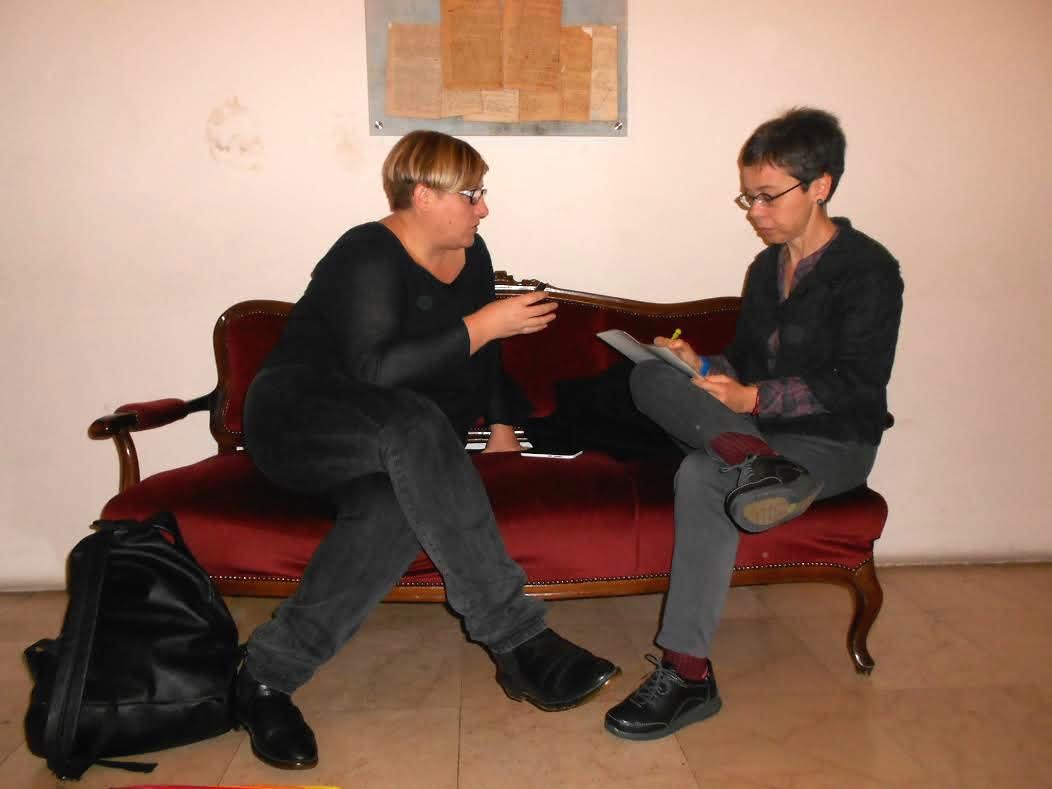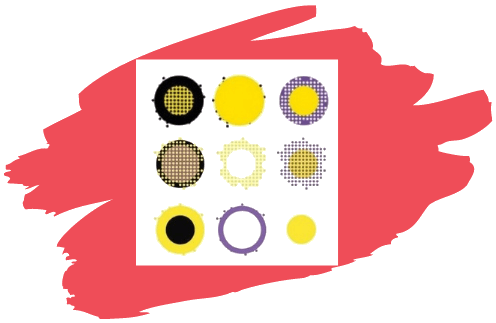Interview with Athena Athanasiou, theorist and activist.
At the conference „How to Act Together? From Collective Engagement to Protest“, organized by the Institute for Philosophy and Social Theoryfrom 19 to 21 of November, Reconstruction Women’s Fund had a chance to meet Athena Athanasiou, the first on the list of participants of the Conference round table. In 2013, together with Judigh Butler, she published the book Dispossession: The Performative in the Political.
Athena Athanasiou teaches at the Department of Social Anthropology at Panteion University of Social and Political Sciences, in Athens, Greece. The fields of her research include feminist and queer theory, body biopolitics, antimilitarist movements, nationalism and memories.
Her answers to the questions concerning feminist philantropy you can read here:
RWF: Why do you think it’s important to invest in women’s human rights?
AA: I believe that it is very important to invest in women`s human rights and, at the same time, to continue specifying and clarifying what we mean when we talk about women`s human rights in specific contexts and in specific discursive conditions. In my understanding, the mainstream agenda of international human rights has been deficient and problematic in many ways in relation to women`s human rights. And so I think it is crucial to always try to open it up and, in a way, refashion it in a critical way. More specifically, there is a long genealogy of women’s ambivalent position not only vis-à-vis human rights themselves, but also vis-à-vis the very definition of “the human”. So when we talk about women’s human rights, we need to have this long genealogy of exclusion in mind. We need to ask: what is the relation of “women” to “humanness”? What are the gendered, racial, class and other exclusions upon which the mainstream definition of “human” has been historically established? Because this exclusionary definition of human, humanness and human rights does not hold only for women – it does hold also for other ambivalent alternative “humanities”, such as queer people, trans people, non-white people, all those who have not fit comfortably under supposedly universal formations of “humanity”. So we need somehow a more complicated, intersectional way to talk about gender, race, ethnicity, sexuality and, even more than that, we have to rework on a more refined idea of “intersectionality” which is not a tool for compartmentalizing different identities, but can be deployed as a way to create new assemblages of being and being together in terms of different positionalities in relation to gender, race, sexuality, ethnicity, and able-bodiedness. So, I think there is a lot of critical work to be done when we talk about women`s human rights. “Investing” in women’s human rights, as you put it, has this kind of critical connotations for me.
RWF: Feminism incorporates intersectionality.
AA: This is precisely why I am interested in transforming the possibilities for identity categories as occasions for coalitions, beyond monologic and single-axis approaches. But this is something always to be put forward anew as a way of dealing with and combating different but interrelated matrices of power and privilege, such as sexism, racism, heteronormativity, xenophobia, and ableism. But I am very critical of mainstreamed ideas of intersectionality, which often have depoliticizing effects. That’s why I used the word assemblages and re-assemblages. I find Jasbir Puar’s work on this concept very topical and significant in that respect.
RWF: Do you think it’s important to have feminist foundations and why?
AA: I think it is indeed necessary and important to have and work in and with feminist institutions. At the same time, I believe in a combination of institutional work and grassroots and movement work. I also want to be able to interrogate this distinction. I believe this foundation you work with is totally about that, so this is something I deeply appreciate and I think it’s the most important part of our work today as feminists.
We need, we desperately need this kind of institutions today and I hope they can still be public. I know there are some major issues with fundraising which are related to the very existence, to the very condition of possibility for the existence of institutions like that. So, in talking about women’s human rights, we necessarily inhabit a very fraught domain in which two conflicting paradigms: the first one is the universal framework of women`s human rights, which is premised upon a conventional and fixed idea of universal womanhood; and the second one is related to “cultural relativism”, which is premised on the idea that the source and the ultimate legitimation of human rights, including women`s human rights, is “culture” and “cultural specificity” or “cultural difference”, including the long history of “cultural differences” produced by colonial power. I think we need to work further to break with the polarity between these two paradigms. We need a way out of this scheme and this is the kind of conceptual, reflexive and political work that feminist institutions like that can initiate and sustain. So, this is a part of my answer: that’s why we need an institution like that: as a site for continuous struggle and continuous rethinking of how women`s human rights are formed, reshaped, negotiated, renegotiated, and being critically transformed all the time.
RWF: But it is not so easy, because we are also transforming the source of money and in that sense it’s a growing trend to invest a lot in militarization and weapons and to actually cut the investments for women, so the problem we are facing with is that no-one cares to invest in women.
AA: Of course. This is a crucial part of our work, that’s part of your work as someone who works with this foundation. And this is not only about working to secure the very existence of the institution, which is very important project in itself, in these times of defunding, but it has to do also with a broader political demand for rerouting resources used to support militarization, securitization, and building barricades to immunize national borders. So we have to reclaim these resources towards our critical work. Fundraising has this political quality attached to it, it’s not just a technical issue. Now, of course, the more complicating factor has to do with the fact that fundraising is attached to a certain kind of hierarchization between funders and grantees…
Of course, there are different perspectives and attitudes of fundraising. On principle, it can be very complicating when and if it works to produce and affirm hierarchies between funders and grantees. But again, it’s important to secure a way in which foundations like that are based on the people and it’s important to make sure that these resources come from channels that are publicly accountable.This is the ethics of social mutuality attached to the attempt to safeguard the idea and the existence of public institutions. It is a matter of creating spaces of responsiveness, accountability and mutuality.
RWF: What the concept of solidarity means to you?
AA: This is one of the most crucial questions of our time, in so many ways. It is a difficult and complicated concept, as well as a difficult and complicated site of political work. And so I would point to a critical departure from a Durkheimian mode of solidarity as social cohesion and towards a more open-ended and contingent conceptualization of solidarity. Could we think of solidarity beyond a precondition of wholeness, homogeneity, fixity and stability, and as a means for reflective and contingent sense of being-together? That might be a fruitful way to think and enact collective strategies of survival, commitment and camaraderie –local, transnational, as well as glocal- in ways that are not premised upon stable and fixed definitions of humanness, womanhood, in ways that do not seek to define who counts as human, who counts as woman, who counts as citizen, who counts as member of the public, and in ways that actively resist such authoritarian and exclusionary definitions.
RWF: Thank you.
AA: It was my pleasure to talk with you.
Interview : Zoe Gudović
Photo: Nina Đurđević Filipović





